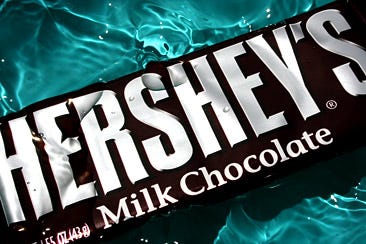Do You Feel the Love? Consumer Affection for Brands = Success, says Study
March 11, 2015
 We’ve all known that great brands are loved by consumers, and that such affection tends to translate into improved sales. That’s pretty obvious. That is, after all, the point of branding, right?
We’ve all known that great brands are loved by consumers, and that such affection tends to translate into improved sales. That’s pretty obvious. That is, after all, the point of branding, right?
But perhaps we sometimes forget how strong that link is. A recent study suggests that the tie between consumer love and financial performance is even stronger than imagined.
According to the report, the more intensely a brand is loved by consumers, the more likely it will be able to endure economic hardship. What’s more, the study says that brands that evoke strong emotional connection with consumers will tend to be the ones that benefit most from a prolonged economic crisis.
I don’t know that the ideas put forth in this research are groundbreaking, but the study is a nice reminder of the stakes involved in what brand managers, packaging designers, and marketers do. Definitely things worth thinking about as you consider how your decisions will affect consumers. (Ahem – Tropicana.)
Here’s the whole release on the study. Interesting reading.
Kadence Announces New Study Revealing Most Recession-Resistant Brands
A major new study into consumer perceptions of 650 leading US brands has shown a strong link between the affection consumers hold for a brand and its stock performance. The findings reveal valuable insights into which brands may have the best positioning to withstand the current economic downturn and the exact mix of personality traits that make some brands do well while others suffer.
The Milestones study is collaboration between market research agencies Kadence, Brand Care and So What Research. It was conducted online amongst 5,500 educated, affluent consumers aged 18-54 during the crucial pre-Holidays shopping period in December 2008. This coincided with heavy media coverage of the credit crunch and resulting decline in consumer confidence.
The study provides a robust measure of consumers’ affection – or the ‘wonderfulness’ – of the brands along with their perception of value, familiarity and usage of each one. It also records brand personality traits and consumers’ social, economic and environmental concerns to provide a broader context for their preferences.
According to the study, the ten most wonderful brands in the eyes of US consumers are (in descending order) Hershey’s, Google, Sony, Kraft, Crayola, Kellogg’s, Scotch Tape, Wii, Rolls Royce and Johnson & Johnson. The ten least wonderful brands are (from bottom up) National Enquirer, AIG, Botox, Kia, alli, Hummer, O The Oprah Magazine, Dress Barn, ChemLawn and Direct Buy*.
In terms of value, brands that were seen as offering the best ratio of wonderfulness to cost were Walmart, Google, Amazon, Hershey’s, Target, Cheerios, Campbell, PBS, Yahoo and eBay. Brands that were seen as offering the worst ratio of wonderfulness to cost were Hummer, Botox, Prada, Land Rover, Gucci, AIG, Saks Fifth Avenue, Louis Vuitton, Maserati and Ferrari.
Owen Jenkins, CEO of Boston-based Kadence Business Research, comments: “Detailed analysis of responses shows a strong correlation between the level of consumer affection and stock performance in 2008. For example, corporations owning brands with a mediocre affection score of 4.5 out of 7 lost nearly 50% more stock equity last year than corporations owning brands with an affection score of 5.5. In other words, a small difference in how much a brand is loved makes a big difference in how it performs on the stock market.”
The study also includes diagnostic analysis that isolates specific associations that protect or destroy brand affection and stock equity. Corporations with brands associated with caring, unique, fun-to-be-with, resourceful and intelligent consumers performed far better in the financial markets than brands associated with sophistication, blitheness, innovation, fashionability and environmental concerns. Association with higher income consumers is the single strongest predictor of poor corporate stock performance in 2008.
Owen Jenkins says: “Milestones provides important clues to the consequences of a deepening economic crisis. Our analysis of the associations linking consumers to brands clearly demonstrates that the credit crunch has become a far more persuasive factor in consumer attitudes – and by implication their purchasing decisions – than other issues like environmental and global poverty concerns.”
Respondents can be split between those people who feel most insecure about the financial status of their household and those who feel less of a pinch. The study suggests that brands especially liked by those with the biggest financial concerns – such as Prilosec, Sunkist, Orville Redenbacher, Maybelline, Johnson & Johnson and Kool Aid – may be the ones that profit most from a prolonged or worsening crisis.
The full report will give brand marketers across all sectors powerful intelligence on which to base strategic marketing decisions. In addition, investment analysts will benefit from a range of insights into consumer preferences that link closely to the brand-owning company’s stock price.
* NB The list of ten least wonderful brands excludes celebrities and sports teams.
.
About the Author(s)
You May Also Like


